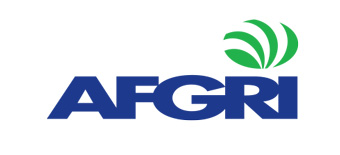Big business is putting big effort into securing the world’s food supply – “sustainability” is the new “eco-friendly”, reports Trevor Crighton.
The farming industry requires a system that produces higher volumes of a better-quality product without compromising on price, and which quantifiably improves the environment in which is it is produced… Does this sound like a dream business scenario? Well, it’s one that two South African corporate giants are well on their way to implementing.
“Sustainability” is a 21st-century business buzzword – easy to promise, but challenging to deliver on. For many corporates, it’s a catch-all term for recycling and cutting down on energy consumption, but there are few industries in which it delivers such tangible, long-lasting effects as farming and food supply. With the earth’s population currently at seven billion – and set to top nine billion by 2050 – food security is a truly global issue, and both corporates and consumers are paying more attention to the provenance and supply of their daily bread.
The decline in the nutritional value and quality of food has caught popular attention as consumers around the world focus more on their own environmental footprint and what they put into their bodies. This, in turn, is forcing companies to take a more environmentally savvy approach to producing food.
Taking sustainability seriously
South African retailer Woolworths, for example, launched its Good Business Journey programme in 2007, with an eye on consolidating all of the company’s environmental and social responsibility work under a single umbrella. More than a nod to sustainability as a box to tick on the corporate citizenship checklist, the Farming for the Future element of the journey aims to help farmers to grow quality produce while protecting the environment, preserving natural resources and reducing dependence on synthetic fertilisers, herbicides and pesticides, without adding to the price the consumer pays.
“Our suppliers have been incredibly supportive of our Farming for the Future programme, as they have seen the benefits: improvements in soil health, reductions in water usage and reductions in inputs such as chemicals, pesticides and fertilisers, with associated cost savings,” says Woolworths’ head of sustainability, Justin Smith. “They have also seen biodiversity improvements on their farms, which they really are passionate about, as stewards of the land.”
Sustainability is about rethinking processes, from what to produce and how to produce it, through the packaging, delivery and sales processes. For example, Woolworths’ participation in the Water Stewardship Programme with the World Wide Fund for Nature (WWF) seeks to protect the most important natural resource required for farming: water. Working directly with its producers – such as Bergsig Wines – sees the company participating in the safeguarding of ecosystems, with a view to long-term production.
Furthermore, the retailer’s Enterprise Development Programme is focused on bringing emerging suppliers into the supply chain, with 50 partners currently on the journey.
Organic production plays a role in the Good Business Journey, but it’s just one element, according to Smith. “The demand for organic products is fairly stable in South Africa, but we are certainly seeing consumers placing more importance on understanding where their food has come from, and how it was produced.”
“Organic farming works really well for certain crops in certain climatic conditions, but if it is applied in the wrong climatic areas, it can require more land and water resources to produce the same yield as conventional farming. This is why we developed the Farming for the Future programme, to take the best parts of organic and conventional approaches into a structured programme that does not add any cost to the consumer.”
A bonus delivered by the Good Business Journey has been a saving of R280 million for the company over the last five years, thanks to reductions in the use of energy, water, fuel and packaging. The plan for the next five years has seen the company establish new targets across eight key focus areas: ethical trade, energy, water, waste, sustainable farming, transformation, social development, and health and wellness.
A streamlined approach
While agricultural services and processing company Afgri is not directly involved in farming, the group has also become increasingly aware of the need for a focus on sustainability. Looking inwards, Afgri’s focus has been on the environmental streamlining of three core operations: factories, silos and mechanisation stores.
Energy supply has become increasingly crucial in South Africa, and with Afgri relying on a mix of coal for direct consumption and purchased electricity for production, responsibility demanded the introduction of sustainable solutions. The company’s industrial foods businesses therefore introduced a number of programmes aimed at reducing electricity consumption and bringing down costs. These interventions range from operating outside peak hours to introducing solar heating for non-essential hot water, applying heat transfer principles to heat non-essential water, the automation of boilers and the introduction of variable-speed motors.
A focus on the efficient use of waste products from Afgri’s production processes has delivered innovative projects, such as one that sees solid waste being removed from effluent water at their Delmas processing plant before being released to an irrigation dam, which is used by a local farmer. Its milling operation was already a relatively efficient system, since most waste from production already has a secondary use. Chop and maize flour produced in the maize production process have commercial applications, as does bran, which is a byproduct of the wheat production process.
External processes also play a role in refining Afgri’s own standards. For example, its Nedan crushing and oil extraction business supplies oil to a large fast-food franchise, which applies its own strict standards in terms of quality and provenance. Nedan’s role in supplying products to FMCG conglomerates requires compliance with international food safety audit standards, which means it can export its products.
Afgri’s group sustainability manager, Marion Shikwinya, says the company is delighted to see “green thinking” becoming a pivotal part of the South African agricultural mindset. “Currently, the contribution of agriculture to climate change is significant. Agriculture is an emitter of greenhouse gases associated with land-use change, fertiliser use and enteric fermentation among livestock.”
Globally, agriculture accounts for around 15% of global greenhouse gas emissions, says Shikwinya, who concludes: “Agriculture will have to reduce these emissions substantially and contribute to climate change mitigation if it is to contribute to a green economy.”
Did you know?
One in three of the world’s hungry live in Africa, which remains the continent that does not grow enough food to feed its citizens. Yes, Africa has around 60% of the world’s uncultivated land.
Therefore, as a continent, Africa is ideally placed to capitalise on the availability of rich agricultural land and the associated opportunities for investment. This means Africa could play a pivotal role in meeting the planet’s agricultural needs in the future.
Greener communities
Beer producer SAB has focused its sustainability drive on assisting local farmers in producing the raw materials the company uses in its production processes – building local communities and cutting costs along the way.
One of the SAB Go-Farming Sustainable Agriculture Initiative’s most promising success stories is the Jacobsdal Pilot Project. Having spotted the barley-farming potential in the small Free State town, SAB assisted two local farmers in setting up farms. The brewer offered advice from inception – starting with soil analysis and upgrades, through to fertiliser recommendations and water monitoring. Overseen by Kimberley-based SAB agriculturalist Frikkie Lubbe, the pilot project has encouraged other farmers in the area to explore barley as a rotation crop option, bringing previously disadvantaged farmers into the SAB supply chain and helping the company to secure a sustainable, local source of one of its key raw ingredients.
Afgri also has two successful community-based projects: the Roundabout PlayPumps in Mpumalanga (a playground merry-go-round system that uses the energy of children at play to operate a water pump) and a borehole initiative in the Zama Zama informal settlement outside Pretoria. Afgri’s Marion Shikwinya says Roundabout PlayPumps were set up in five underresourced primary schools in Mpumalanga to supply learners and communities with access to clean and disease-free water. “Our mission in Zama Zama was the same – the community had no access to clean water until we provided a borehole,” she says.

